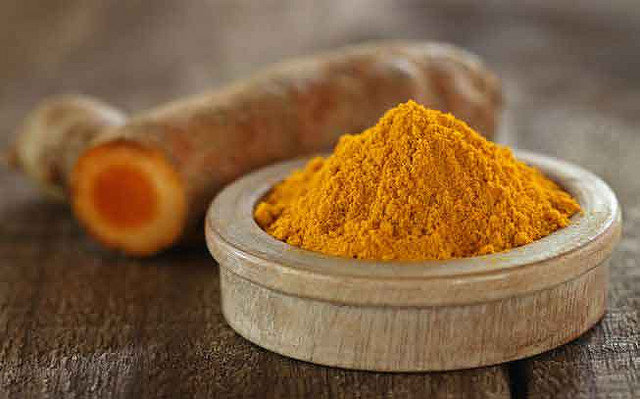Psoriatic Arthritis: Which Foods are Triggers and Which are Suppressants?
What is Psoriatic Arthritis
You’ve likely heard of psoriasis. And you’ve likely heard of arthritis. But, have you ever heard of psoriatic arthritis? If you haven’t, you should. It’s one of the most common types of arthritis, right behind osteoarthritis and rheumatoid arthritis. Although all three types of arthritis have overlapping symptoms, one of the most distinguishing characteristics of psoriatic arthritis is that 85% of individuals living with this disease also have psoriasis.
Equally affecting men and women, psoriatic arthritis most often has an onset in adults between the ages of 30 and 50. While juvenile psoriatic arthritis can occur, it is far less common. Does this mean if you have psoriasis that you will also develop psoriatic arthritis? Not necessarily, but your chances do increase significantly. Around 30% of individuals who experience psoriasis will go on to develop psoriatic arthritis.
The symptoms of psoriatic arthritis include the classic joint pain and inflammation. But, individuals living with the disease may develop problems such as tendonitis, generalized fatigue, dactylitis (finger pain and swelling), heel pain, back pain, nail pitting, and reduced joint mobility. While there are five different types of psoriatic arthritis, the most common type affects joints asymmetrically. In contrast, rheumatoid arthritis typically affects joints symmetrically; that is, the same joints on both sides of the body.
The most common type of treatment for psoriatic arthritis is the use of NSAIDs and DMARDs. However, individual diet is also gaining attention as a possible trigger and/or suppressant for psoriatic arthritis symptoms.
What Foods Should I Eat?
When it comes to psoriatic arthritis, many of the foods on the “good list” are the same types found on other types of healthy diet lists such as for heart health, diabetes, and cancer. Many of these foods have the effect of decreasing inflammation. Naturally, since joint inflammation is a major symptom of psoriatic arthritis, these types of foods are beneficial for people who have this disease.
What should you eat to decrease inflammation? As a starting base, your diet should include:
- Vegetables
- Fruits
- Fish
- Beans
- Nuts and seeds
- Legumes

When cooking, use healthy oils, such as extra virgin olive oil or avocado oil. Great herbs to use include ginger and turmeric, which are also noted for their anti-inflammatory properties.
Many of the foods listed for helping to improve psoriatic arthritis are ones with anti-inflammatory and antioxidant properties. The following list of foods are known for just that.
- Avocado: This fruit is one of the best healthy fats out there. Avocados are high in potassium, beta-carotene, and Vitamins C, E, and K.
- Greens: Leafy greens, including collards, spinach, kale, Swiss chard, and beet greens are great anti-oxidant and Vitamin K boosters.
- Fatty fish: Anti-inflammatory omega-3 fatty acids are the key in fatty fish. Try trout and salmon as part of your psoriatic arthritis diet.

- Green tea or Matcha: The catechins in tea are the antioxidant powerhouses that reduce inflammation. Matcha is a powdered form of green tea mimicking the same antioxidant and anti-inflammatory properties as the traditional tea leaves that are steeped in water.
What are Foods that Trigger Psoriatic Arthritis Symptoms?
Now that you know what you should be eating, let’s talk about what you should be avoiding if you are living with psoriatic arthritis. While the above list of foods are noted for their anti-inflammatory properties, there are foods that are known for just the opposite. That is, they are known to cause inflammation. Naturally, these are just the types of foods you should avoid if you are living with psoriatic arthritis.
Saturated fats, sugar, alcohol, and simple carbohydrates are all triggers for psoriatic arthritis symptoms to flare up. They’re also key factors in weight gain and obesity. As your weight increases, the stress on your joints also increases, so it goes hand in hand that keeping your weight down is beneficial for managing psoriatic arthritis.

What’s on the “bad food list” for individuals living with psoriatic arthritis?
- Processed meats (e.g., hot dogs, sausages, bacon)
- Alcohol
- Sugary drinks
- Processed foods (e.g., packaged cakes, cookies, and other similar snacks)
- Soda
- White bread
- White rice
- Candy
- Fried foods
Similarly, the foods on this list are ones that you would find on many lists for “foods to avoid.” It is only natural that our bodies do well with more nutrient-dense foods than ones that are processed, enriched, and full of sugar.
What are Beneficial Diet Plans for Psoriatic Arthritis?
You’re no stranger to the fact that there are multiple diet plans in the market. These include fad diets, low-carb diets, heart healthy diets, lemonade diets, juice diets, and the list goes on. Is there a specific diet plan for individuals living with psoriatic arthritis to follow? There are several, actually.
- Paleo diet: Also known as the “Caveman Diet,” the Paleo diet avoids grains, nuts, processed foods, and dairy. Key staples of the Paleo diet include fish, eggs, meat, fruits and vegetables (typical foods that cavemen used to eat). The benefits of this type of diet for individuals living with psoriatic arthritis is that the main staples of the Paleo diet can reduce swelling often caused by processed and sugary foods and dairy.
- Anti-inflammatory diet: One of the most prevalent symptoms of psoriatic arthritis is joint inflammation. Eating foods with anti-inflammatory properties can reduce swelling. Fatty fish, leafy greens, and a variety of fruits (e.g., blueberries) are great food choices for less inflammation.
- Weight loss diet: To lose weight, you need to limit your intake of carbohydrates, sugars, and fats. Keeping your weight down keeps pressure off of your joints. Additionally, individuals who are overweight tend to have more severe forms of arthritis and are more prone to develop psoriatic arthritis.

- Mediterranean diet: The Mediterranean diet consists of consuming extra virgin olive oil, fish, grains, fruits and vegetables. Extra virgin olive oil is the star of this diet – and is known for its anti-inflammatory properties and omega-3s.
- Gluten-free diet: Eating a diet free of gluten may help with psoriasis symptoms. Over 25% of individuals who have psoriasis show sensitivity to gluten, a protein found in barley and wheat. Gluten is used in a large variety of processed foods, which are not the healthiest. Eating a gluten-free diet encourages the consumption of more fruits and vegetables, and less processed products.
Supplementing Your Diet
In addition to eating healthy foods, you can use a variety of natural remedies to treat psoriatic arthritis. Many of these are food-based.
- Ginger: a natural anti-inflammatory; you can eat ginger in your everyday cooking or take supplements.
- Capsaicin: blocks pain receptors to reduce pain; capsaicin has been known to decrease the occurrence of psoriasis.
- Turmeric: similar to ginger, turmeric has great anti-inflammatory properties; the curcumin in turmeric is the key ingredient to reduce swelling and inflammation in the joints.

- Apple cider vinegar: a great natural agent to reduce psoriasis flare-ups, especially scalp psoriasis.
- Fish oil: rich with omega 3s, fish oil supplements can minimize the swelling and inflammation in the joints caused by psoriatic arthritis.
- Boswellia: known more commonly as Indian frankincense, Boswellia contains anti-inflammatory agents to reduce joint inflammation and swelling when taken in capsule-form.
- Boxberry: Native Americans have chewed on the leaves of boxberry for centuries as an anti-rheumatic agent.
Whether eating a diet free from inflammatory triggers or eating a diet rich in antioxidants and anti-inflammatory agents, what you’re eating on a daily basis can affect your psoriatic arthritis symptoms. Supplement a good diet with drug therapies and lifestyle changes, such as adequate exercise and rest, and you can improve your quality of life exponentially while living with psoriatic arthritis.
